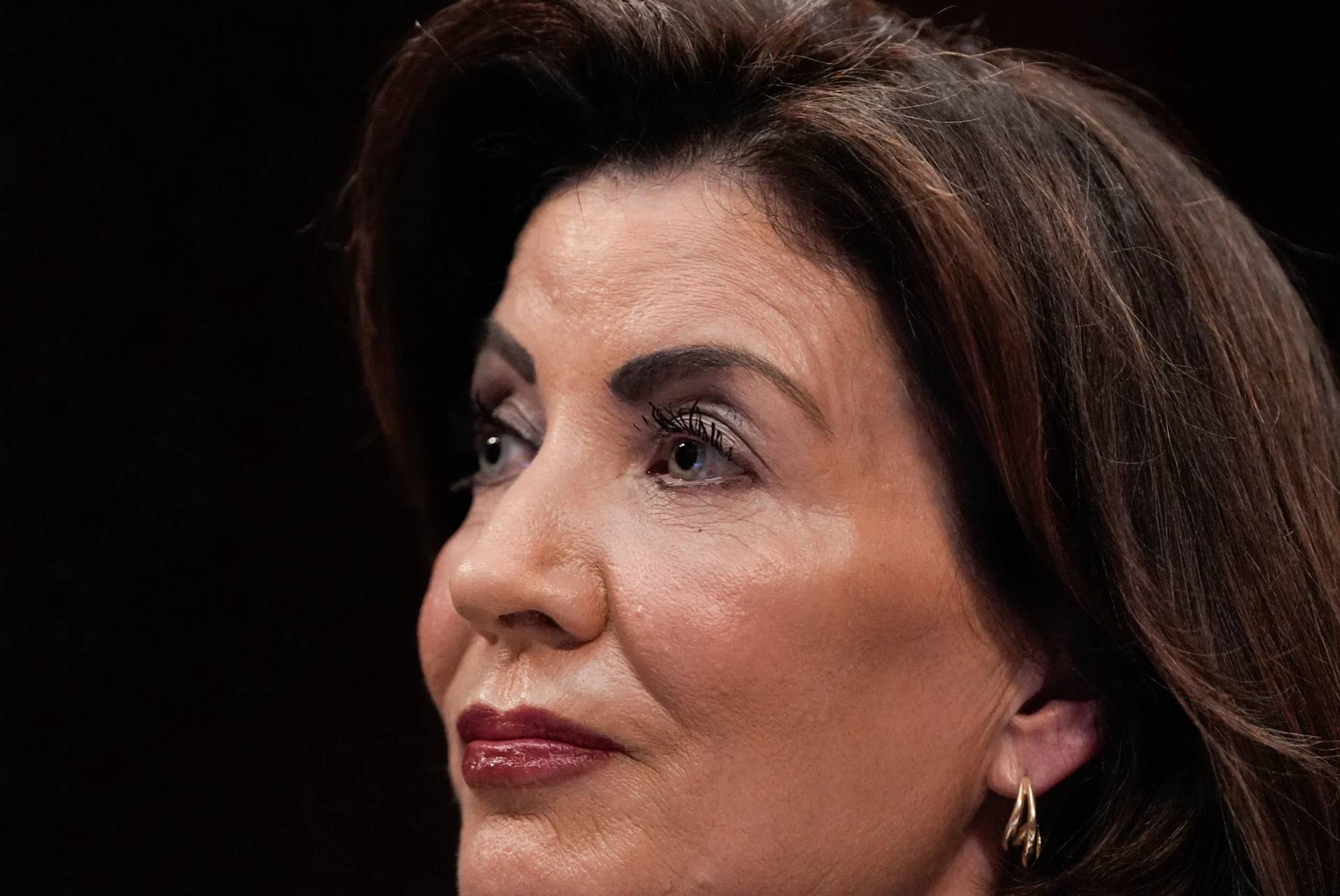ROME – Judging by what women speaking at a progressive, reform-minded conference in Rome on Thursday said — some of whom, among other things, described the Catholic Church as the “primary global carrier of the toxic virus of misogyny” — one might wonder why they bother remaining in the Church at all, if they’re so dissatisfied.
The basic answer one heard was teased by the former President of Ireland, Mary McAleese, who during a press conference for the event on Wednesday stated: “We are here because we care, because I care!”
That sentiment was echoed by the majority of speakers at the event.
The “Voices of Faith” conference, which for the last four years was held within the Vatican, lost its stamp of approval this year after organizers were told that three members of the panel, including McAleese, were not accepted by the Vatican’s Dicastery for Laity, Family and Life, in light of their vocal support for abortion and gay rights.
Instead, the meeting was held a few blocks away from St. Peter’s Basilica in the auditorium of the headquarters of the Jesuit order, which was packed with lay and religious women and men.
A Ugandan gay rights advocate, Ssenfuka Joanita Warry, also among those blacklisted by the Vatican, said that many ask her why she remains a faithful Catholic and even organizes prayer groups for gay and lesbian people, despite her disapproval of the Church’s treatment of the LGBT community.
“I believe things can be different,” she told participants at the conference.
“Our religious leaders hold the key to the protection of LGBT persons, and not only in Africa. Imagine if the Vatican took a stance against criminalization to stand up for these walks of life, then we have hope,” she said.
According to Zuzanna Radzik, a Polish theologian with a focus on Christian-Jewish relations, the beauty of the Catholic tradition, from its liturgy to its sacraments, “nourishes” her, and hence she feels no drive to explore other religious denominations or abandon the faith despite the fact that she feels “always prepared to be rejected” in a bishop’s office or by the Church as a whole.
“I am really not planning to go anywhere!” she said. “Even if angry, our anger shows that we are committed, and we are not giving up on the Church.”
While these women persist in their faith and stick with the Catholic tradition, they also claimed that many young people are abandoning the faith for exactly the same reasons.
“Women are walking away from the Catholic Church in droves, for those who are expected to be key influencers in their children’s faith formation have no opportunity to be key influencers in the formation of the Catholic faith,” McAleese said in her keynote address.
Focusing on the United States, a 2015 Pew Research Center study found that the number of Americans who are no longer religiously affiliated, or “nones,” has increased more than 6 percent since 2007. The authors of the report also found that 12.8 percent of U.S. young adults, between the ages of 18 and 25, are former Catholics, and approximately 6.8 percent of U.S. teens abandoned the Catholic Faith.
Overall, the study found that 74 percent of respondents had left the faith between the ages of 10 and 20.
The Hindu-Catholic Lobo sisters, Nivedita and Gayatri, represented the voice of millennials, meaning youth between the ages of 16-35, at the conference. They pointed to the disenfranchisement of young women as the main reason young people are abandoning Catholicism.
“Most of my young friends, I think, would identify as Catholic but don’t go to church. But that’s the same for most of my friends who are Hindu, and most of my friends who are Muslim as well. I don’t think it’s just young people walking away from the Church, I think it’s young people walking away from organized religion, which has very emphatically said, ‘We don’t want you anyway’,” Gayatri said in an interview with Crux.
Unlike her sister, Gayatri described herself as a “success story” because she chose to remain within the Church and to be baptized, in order to to “experience Mass in its entirety.” Despite this, she said, it was as if her sense of self derived from her faith and her moral compass were battling each other, and she said she struggles to support a Church which, in her opinion, is not inclusive toward women and LGBT people.
Nivedita said she perceives the Church as “removed from what I am chasing as a young woman,” which includes participation, agency and to be actively involved in the decision-making process.
“If the Church tells people it doesn’t believe in them, how are they supposed to believe in themselves?” Nivedita said. “I think the Church needs to regroup and figure out its values and priorities. Unless it’s willing to allow a shift in power dynamics, that is, women in leadership, it is going to lose relevance for young women today.”
Nivedita asked for the Church to create more space for young and especially female voices to be heard.
“We may not be attending Mass, but we are out there making a difference,” Nivedita said. “We are moving ahead at a tremendous speed in a virtual world.”
“We can’t be stopped but we need your guidance,” she added.
Another common thread at the Thursday conference were multiple appeals to Pope Francis.
McAleese described the Church as a pigeon “flapping about awkwardly on one wing when God gave it two,” calling on the pope and the clergy to develop a “strategy with targets, pathways and outcomes regularly and independently audited” for the inclusion of women.
Gayatri told Crux that she was initially very excited when Francis was elected, and views him as open to dialogue and mutual understanding. Despite this, she added, she wants to see “more assertiveness,” “more active protection,” and a more “solutionist approach.”
“I have three words for Pope Francis: Take a side! Take a stand! Don’t be afraid,” she said.

















